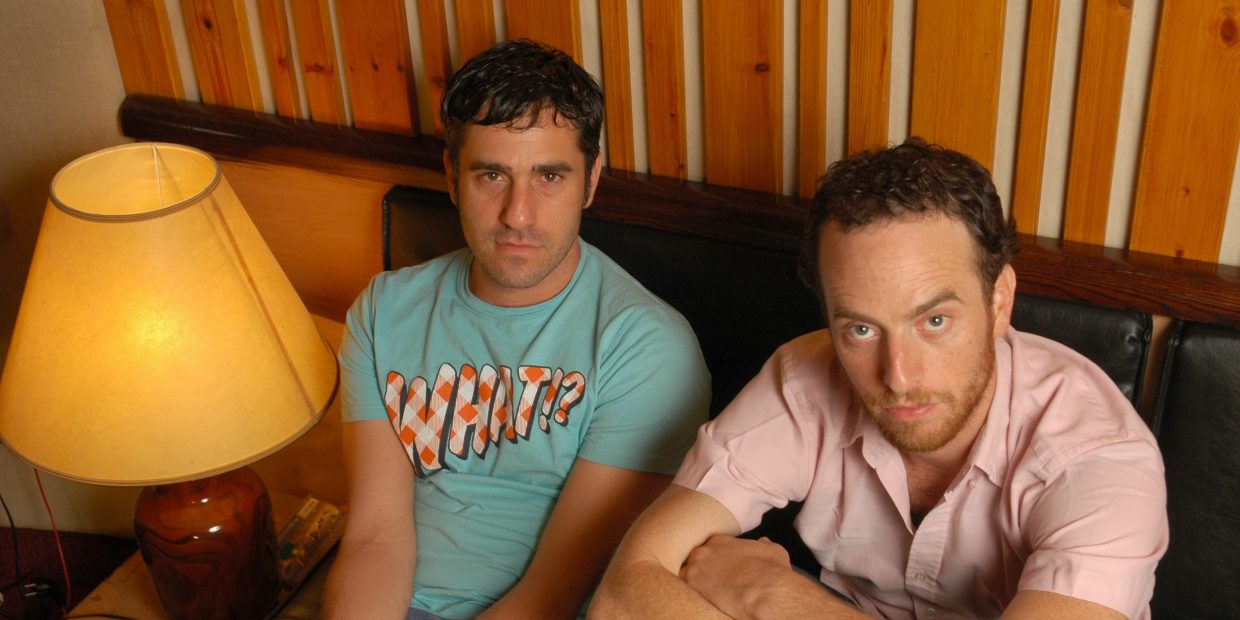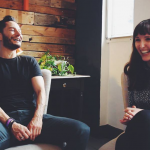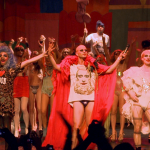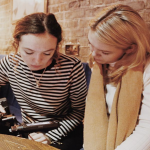Watch Who’s Gonna Love Me Now? on FilmDoo
Who’s Gonna Love Me Now? explores the life of Saar, a gay HIV-positive Israeli man living in London. His family are deeply Jewish and struggle to accept his sexuality, leaving Saar inevitably somewhat estranged from them. However, the documentary follows a bilateral attempt at understanding and the gradual reuniting of the family. While the path is bumpy, it’s one that both sides are finally prepared to travel.
FilmDoo interviews directors Tomer and Barak Heymann.
When did you first meet Saar and why did you decide to document his life?
Tomer: I met Saar more than twenty years ago. I saw him and I wanted to kiss him. It was 1994 and we were both young, wild and crazy guys in Tel Aviv. Basically it was a one-night stand, but we spent the whole evening together and we found so many things in common and he penetrated my heart. From the first early meetings, something about him, something about Saar’s soul was really special for me. In the morning, when he said goodbye, he went to the corner to his bag and he took out all these Jewish articles and in one minute he had a radical transformation. He switched to be a Jewish religious boy in front of me after he had seemed like a wild person from Tel Aviv. I asked him why he had hidden it and he told me not to go there. He said he had an issue, a very complicated relationship, and he wanted to escape from his family, and he didn’t think he’d see me again.
Ten years later maybe, I was editing a project in Tel Aviv and I saw him in the street. I remembered his name immediately even ten years later after just that one night. He remembered my name too and we hugged each other and he told me he was living in London and was just visiting his family before going back to London in two days. At this time I was holding my camera because of my obsession with filming people, so I called him and asked him to come to my apartment to have an interview.
We had a very strong 3-hour interview. He shared with me his history; the conflict of coming from a religious family, his father, and his moving to London. He told me that the main reason he had come to Israel was to talk to his family because he was diagnosed with HIV, a long time ago before our meeting. He gave me a very interesting monologue about being HIV-positive without blaming anyone, not the guy that gave it to him, he said that it was his responsibility and that he brought it to himself. He was very open and honest and I decided to use it towards a personal project. However, the day after, I got a phone call from Saar at the airport and he told me never to use the footage. He told me that it would destroy his family if I published it; it was too much for his religious family. So, I said of course, forget about it, I won’t use it. I was sorry though, because it was very strong. He went back to London and I put it in the archive section at our little company.
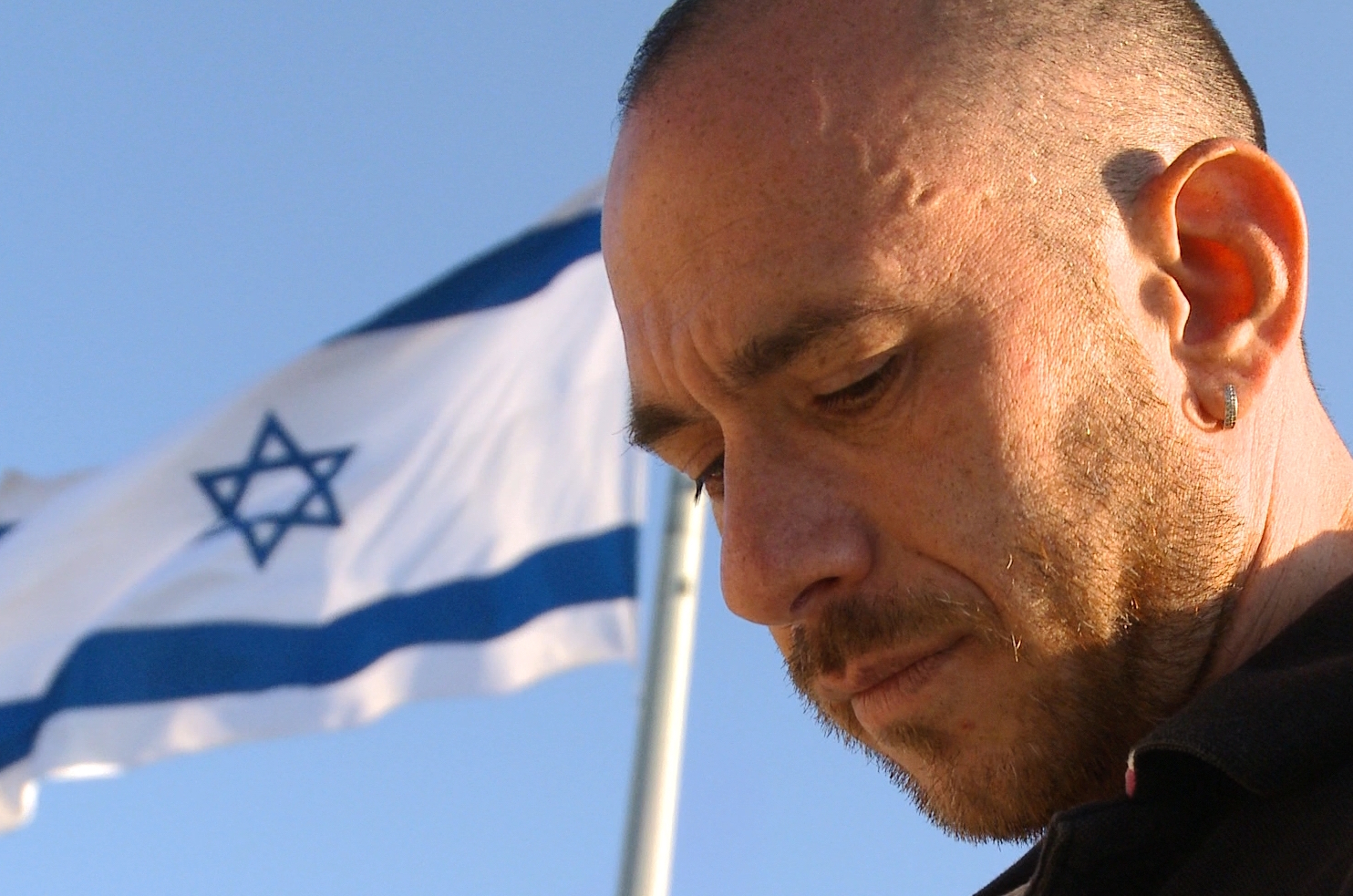
A couple of years later, in 2011, I was invited to get a prize in London and I published it on Facebook and then Saar noticed that I was in London and he asked me to come and see him for a beer. It was a really strong meeting and after one hour he told me that he was going to be forty soon and that he thought it was time to talk about his story. I was so happy and proud about it that I went to my brother and said that this story should be the next project for our little company.
That’s an amazing shift from Saar not wanting the story told because of his family, to actually getting his family involved in the project. How did that happen?
Barak: Firstly, after this meeting between Tomer and Saar in London at the beginning of 2011, Tomer told Saar that he wanted to make the film and he told him about me, his brother and his partner for the project, and called me to ask for my opinion. He said that maybe he was subjective because he had this little affair with Saar many years ago, maybe because he’s gay and Saar’s gay maybe, and he wanted me to bring my fresh perspective to the story, or maybe my straight perspective to the story. I’d never met Saar and didn’t know anything about him, so he wanted me to research with Saar and decide if I also felt that it was a good story to make a film about.
When I called Saar to do this research, already in the very first sentence I told myself that it would make such a boring film. I wondered what had happened to my brother and his documentary instincts, because the first thing Saar told me was that he had the most amazing family in the world. I was thinking, this is boring, who wants to make a film about the perfect family? Who wants to watch a film about a perfect family? I thought I’d be polite and then stop the conversation after a few minutes and tell my brother to forget about it. However, then what happened was that throughout all the conversation, which lasted for almost three hours, Saar kept bitching about his family; telling me how homophobic they are, telling me how happy they are that he’s so much away from them, how happy he is to be away from them, and how huge and emotional the conflict is. This is when I told myself, okay, so my brother was right, there is definitely a story here, there is definitely a film here.
This is when Tomer told me that we wouldn’t make the film if we didn’t have the approval of all the family members, which is a huge amount of people as you can see in the film! Then we slowly started to talk to them, meet with them and gain their trust. So, we started to make this film, but very gently at the beginning. During the very first meeting we had with our researcher at the house of Katri, the father of Saar, we didn’t even use words like HIV or AIDS, we referred to it as ‘the thing’. So they would ask us, “will it also include ‘the thing’?” and we would say yes, but that it wouldn’t necessarily be the core of the film. It was very soft at the beginning because we couldn’t just come into the life of a family at full speed and full volume and demand to talk openly about everything. We had to go step by step. This is why most of the films that we create take a long process, a few years for each film. This trusting relationship has to be built.
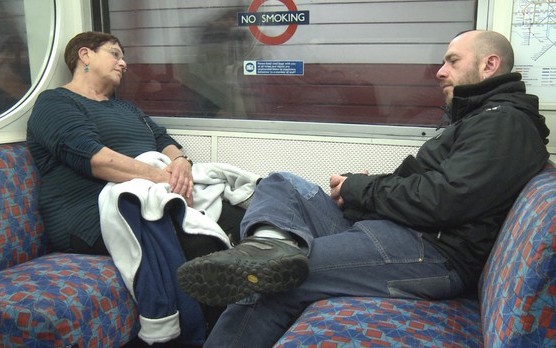
There are some scenes of homophobia towards Saar that are very difficult to watch, for example when his own father refers to him as an animal. How hard is it to be silent behind the camera during moments like these?
Tomer: It was one of the hardest moments for me as a filmmaker. I remember when we were filming I wondered if maybe I didn’t hear correctly, but he kept repeating it so I knew it wasn’t a mistake. He used this word, which in my belief you shouldn’t say to anyone, but here in London a father said this about his son, with his son there as a witness. It opened a much deeper conversation later on between Barak and I because it made me wonder what we were doing. Sometimes you need to protect your characters from themselves, more than they protect themselves. You need to make choices and not abuse their trust. Maybe you need to say that something is too much. Barak had the idea to talk directly with Katri about it and share this conflict with him. So, we spoke to Katri and we told him that we didn’t know what to do because we had the feeling that people would hate him for it, because I hated him in that moment, I was honest with him. I felt, as a gay guy, how dare he talk to his son like that.
Barak: But, we are very different about it, which is good. The fact that we’re different is good for the film. I don’t see it the same way Tomer sees it, maybe because I’m not gay and it didn’t touch me the same way it touched him. But, for me, the fact that Saar was next to Katri actually made it softer because I don’t think he would necessarily talk like this behind his back.
Tomer: I don’t agree. It’s being the opposite of sensitive. It’s being rude, it’s not seeing the other side. I don’t think he thought about Saar. We felt that something very strong came out, it’s a strong situation for a movie, but at the same time it was almost a very violent moment with words, towards Saar but also gay people in general. We didn’t agree on it but I remember sharing it with Katri and Katri asked us what it was we wanted to do with the movie. I said that I wanted to show how he changed himself as a person. He said that we should show him at the beginning and show his steps so that people would realise how huge his journey during the shooting. Right now Katri and Saar are almost best friends and Katri is really open-minded in the way he talks about gay people. He opened his door and his house for Saar’s boyfriend and others, it’s amazing. But, to understand the revolution of this man, you also need to show the other side of him; the dirty side of him, the black side of him, the ugly side of him.
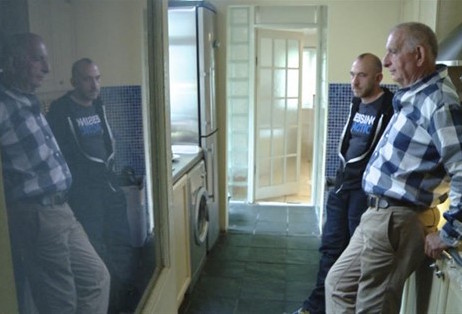
Barak: The same way it goes to the mother. At the beginning of the film she shares with us, very openly, how she was disgusted by the idea of two men touching each other, and there are even more things that aren’t in the film. Like, for example, the fact that she would go every six months to do an HIV test herself. She was so hysterical, paranoid and ignorant about this disease. Then at the end of the film she is convincing Saar to come back to Israel and is loving and touching him. So, this transformation happens with the both of them and is in some ways the most beautiful and optimistic thing about the film. After the film came out, it’s already one year since the premiere in Berlinale, Saar’s mother opened a support group for parents of children with HIV. She’s the only person in the group that is willing to be interviewed with her face and her voice, and she has a really strong and straight agenda about the fact that no-one in this world should be in the closet. She says that if someone is in the closet because they are gay, it means that all of their loved ones are also in the closet. So, the transformation they went through is something that is the core of the film in many ways.
What was the idea behind filming Saar taking part in the London Gay Men’s Choir?
Tomer: This is almost part of the script for me. It’s part of Saar’s life and it’s part of the question of what is your family? Is it your original family or a different family you choose during your life? For a while, these people in the choir were the people that Saar chose to consider as his real family. I think the movie, hopefully, is very intense to watch. It was certainly very intense to direct. You need time to digest what you see and what you feel, but not only in a direct way through words. The choir lift your feelings up and help to open you up by listening to these songs that connect to the movie. The choir gives you a break and then you can be ready for the next chapter, which may be harder or deeper or complicated again. In between, you can let things come into your heart and mind.
Barak: In some ways you can treat them almost like the Greek mythological muses; they’re storytellers but in a different way. The filming was divided in a way that Tomer was more focussed on all the very emotional visits of Saar’s mother and father and Saar by himself in London, and I was focussed on the family in Israel. The first time Tomer came to London with the crew, I remember him calling me and telling me that the choir was unbelievable and that it had to be present in the film. He said that these were the only moments when Saar looked and felt that he was at home, happy, and covered with love and support. Anyone that is very far away from their family, no matter how problematic, homophobic or terrible their family can be, or anyone who is very far away from their homeland, no matter how crazy, racist or difficult their homeland is, they always feel some sort of loneliness. Here in big London, the choir was the only place that made Saar feel like he had a life and a family and that he wasn’t alone but was surrounded by people like him. So, it had to be shown in the film.
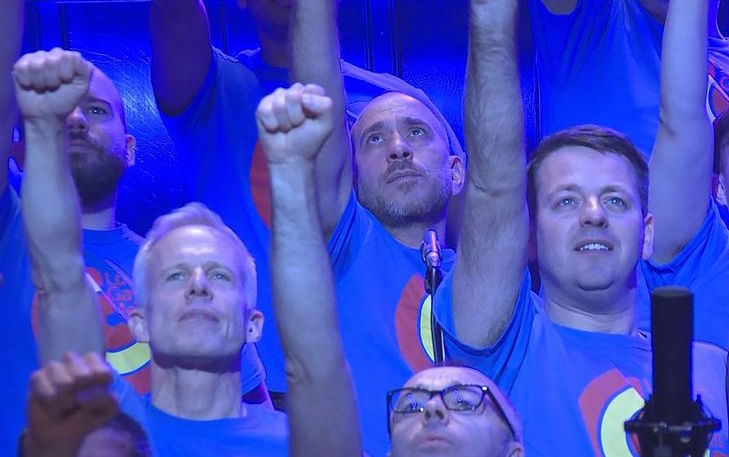
Did the London Gay Men’s Choir ever perform on Ammunition Hill?
Barak: It’s funny, this is always the question that everyone asks in Israel and abroad. One thing I can tell you is no, not yet. But, it’s very important, especially for people that have already watched the film, to know that Katri is welcoming them without the need to change the name. So, this is very good progress. This is a very big dream of all of us, especially of Saar and of Katri.
Tomer: He’s now working to bring the choir and the movie to Ammunition Hill. Saar said he wouldn’t change the name and Katri finally said that he’d lost the battle and that he wouldn’t force them to change the name. There would be soldiers, officers, and people from Jerusalem to see the gay choir from London. Saar smiled, hugged his father and told him that it’s good to stick to your values. So, if they come, we’ll get the whole promotion. Katri is here now and it might be the most important screening up to now for us. We are in London with Saar’s father and, despite the deep conflict between them, Katri has agreed to come and be honest with audiences here. It’s a big moment in our lives.
Are you working on any new projects at the moment, either independently or together?
Tomer: We really want to develop a project that we’ve worked very hard to share with the world. It’s about the biggest porn star to ever have come out of Israel. It explores sexuality, life, and motherhood, between London, Berlin and Tel Aviv. It gives you access to this underground world of the sex industry and it’s a very personal life story. It’s called Jonathan Agassi Saved My Life.
Barak: I’m making another film about an Israeli politician that I’m a little bit in love with, which sounds a bit funny, I know. It’s very political but it’s also like any other film of ours as it’s based on personal experience.
Tomer: We spend most of our time between projects meeting audiences around the world from Brazil to Japan. Who’s Gonna Love Me Now? is still in Israel, I was just in Zurich, and now we are in London. Luckily we are travelling all over the world and meeting special people, like you.
Watch Who’s Gonna Love Me Now? on FilmDoo now (UK & Ireland only).
Watch more LGBT films on FilmDoo.
Featured image from Heymann Films.

